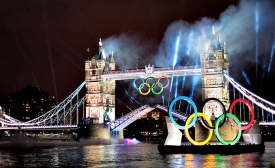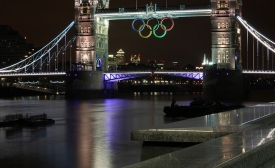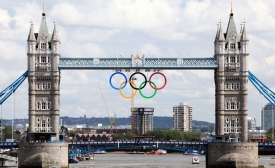olympics

Sherine B. Walton, Editor-in-Chief
Naomi Leight, Managing Editor
Sarah Myers, Associate Editor
Kia Hays, Associate Editor
“We want to stage the parade as a token of thanks for people who have supported us from across the country," Japan Olympic Committee president Tsunekazu Takeda said. "It will be great if this will help boost the momentum of Tokyo's 2020 Olympic bid," he told Japanese media.

A look at how public diplomacy plays a role in the 2012 London Olympics
...the Government’s ambition is nothing less than enhancing Britain’s reputation across the globe. The goal of its innovative cross-departmental GREAT campaign, of which the Olympics is the high point to date, is to refresh the brand of the home nations as amongst the top places in the world to visit, live, work, study and do business...
APDS Blogger: Sulagna Misra

As all eyes turn to London in the coming weeks for the Olympics, a pageantry of cultural symbolism will be on display. Sometimes the most important messages in public diplomacy are the unspoken, symbolic ones. Anthropologist Edward T. Hall called it looking for the “eloquent cues.”
London may be the focus of public diplomacy attention and reap the greatest benefit; however, all countries are likely to seize and squeeze what public diplomacy mileage they can when the international spotlight shines in their direction. When you watch, watch for the cultural cues.
In 1991, the North Korean table tennis star paired with her archrival, South Korea's Hyun Jung-hwa, as part of the first "unified Korea" team to march into international competition wearing the blue flag of the Korean Peninsula. With relations between the foes at a low point, the episode is not about to be repeated at the London Olympics.
The head of the International Olympic Committee has warned that any athlete not prepared to compete against a rival nation for political or religious reasons in London will be heavily punished.







